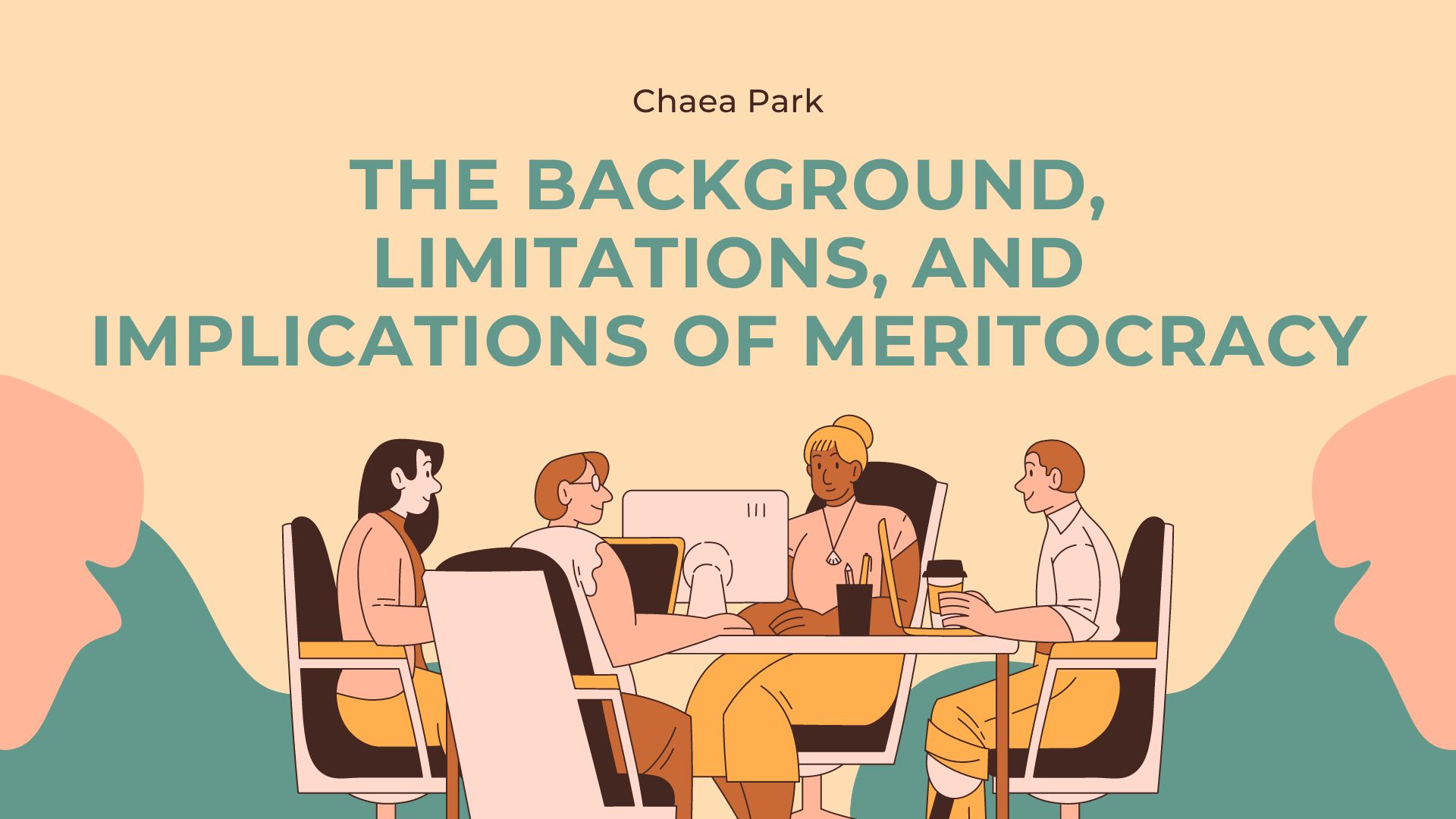The political philosophy that shapes social and economic status according to individual abilities is called meritocracy.
The birth of meritocracy can be explained quite simply. In the past, due to limited technological advancements, significant labor was required in companies to produce goods and generate profits.
However, the current situation, characterized by rapid technological progress, is different. Technological advancements have enabled companies to mass-produce goods in a short amount of time.
Additionally, technological progress has facilitated individuals’ efficient acquisition of information.
This environment has led to situations where individuals with exceptional abilities can replace multiple workforce members, eventually giving rise to the ideology known as meritocracy.
Society operates based on capitalism. According to the principles of capitalism, individuals have the right to possess and accumulate wealth based on their discretion.
Consequently, some people consider meritocracy a natural ideology to pursue in society.
From a consequentialist perspective, it is considered right that individuals with exceptional abilities hold higher social and economic status compared to those less capable.
As understanding of meritocracy increased, society believed that this political philosophy could be somewhat valid and justifiable.
If capable individuals utilize limited knowledge and resources, they can have a positive impact on society.
However, as socioeconomic disparities deepen and questions of opportunity fairness arise, some argue that a critical approach to meritocracy is necessary.
One significant limitation of meritocracy is that it can create an unhappy society. Meritocracy demands proof of individual abilities, and society operates based on capital.
Therefore, according to meritocracy, individuals must produce good results and prove them through capital value. If this ideology is taken for granted, a dichotomous mindset may prevail in society.
People may view those who fail to prove themselves through good results negatively.
If such perceptions persist, many individuals may lose motivation in academics or work, potentially leading to an unhealthy society in the long run.
Consequently, under the pretext of meritocracy, a society undermining individual values and dignity could emerge.
Moreover, meritocracy can be deemed contradictory from the perspective of equal opportunity and fairness.
Each individual has diverse growth experiences, and access to education and opportunities may not be equal.
In many cases, meritocracy overlooks the fact that individuals may be in situations where they cannot seize opportunities or are in somewhat disadvantaged environments compared to others.
In essence, if society evaluates individuals based on meritocracy, it may overlook the severity of inherent inequalities.
Establishing fairness of opportunity is the first step toward building a just society and recognizing that individual abilities may be evaluated differently depending on circumstances.
However, the prevalence of meritocracy in society may lead to a disregard for these points, constituting a limitation.
Finally, meritocracy can give rise to elitism. Throughout history, humanity has continuously struggled for human rights, freedom, and equality.
Concepts opposing these ideals can be regarded as elitism, which justifies the dominance of a minority over the majority. Colonialism and imperialism, for example, have elitism at their core.
Those who prove their abilities may attain higher social status, potentially leading to the marginalization of those who do not.
Thus, the implementation of meritocracy in a society where individual freedom is ensured may seem desirable.
Individuals can gain recognition and achieve greater success through their cultivated abilities. Furthermore, meritocracy can serve as motivation for individuals.
However, meritocracy alone cannot be the ultimate solution. Therefore, society must complement the limitations of meritocracy to assist more people in realizing their dreams and establishing healthy communities.

